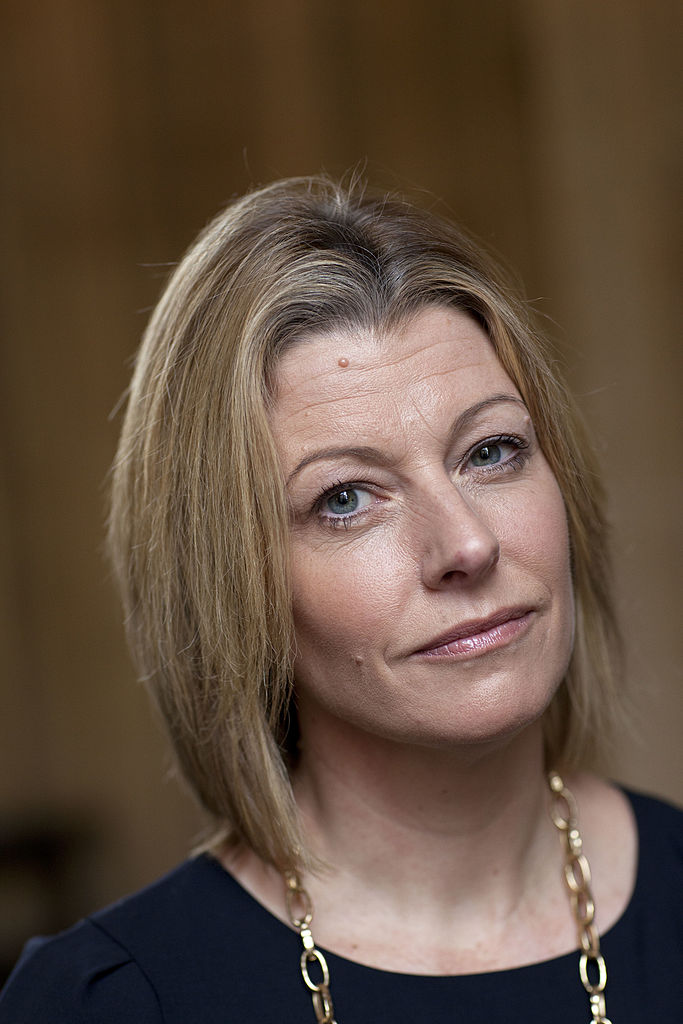A LEADING BBC journalist has announced she is leaving the corporation to join the Caribbean’s fight for slavery reparations.
Laura Trevelyan made the shock announcement on Twitter on Tuesday.
This comes a few weeks since Ms Trevelyan and other members of her family apologised for their ancestor’s role in slavery on the Caribbean island of Grenada.
Writing on Twitter she said: “A new chapter is starting for me. After thirty incredible years at the BBC, I’m leaving tomorrow – to join the growing movement for reparatory justice for the Caribbean.”
Last month, the aristocratic British Trevelyan family announced they would publicly apologise and pay reparations.
The family owned six sugar plantations and owned more than 1,000 enslaved Africans at three plantations in the Caribbean country.
A donation of £100,000 will be given by the family to establish a community for education and economic development for Grenadians.
It has been reported, the funds will come from Ms Trevelyan’s BBC pension and the money will be administered by the University of the West Indies (UWI).
In 1835, the Trevelyan family received approximately £34,000 om compensation for their “loss of property” – when the enslaved Africans were freed.
That sum is estimated to be worth more than £3 million today.
Ms Trevelyan, was one of seven family members who presented a formal letter of apology to the people of Grenada at the end of February.
The letter was signed by 104 members of the family.


Ms Trevelyan has also urged British authorities engage with the region on talks about reparations with “CARICOM and bodies such as the Grenadian National Reparations Commission.”
According to the National Archives of Grenada, between 1662 and 1807 Britain shipped 3.1 million Africans across the Atlantic Ocean in the Transatlantic Slave Trade.
The Africans who were forcibly enslaved and were brought to British owned colonies in the Caribbean, including Grenada, and sold as slaves to work on plantations, generating millions of pounds for Britain.
Ms Trevelyan also thanked her colleagues and the audience who have watched her present several key reports during her 30 years with the BBC.
She added: “Thank you to my beloved colleagues and to our amazing audience. I couldn’t be more grateful to you all.”
At the same event where the Trevelyan family apologised, the Grenada National Reparations Commission (GNRC) told the government to begin consultations about removing King Charles III as its head of state.
Chairman of the GNRC, Arley Gill, said as Grenada prepares to celebrate 50 years of independence from the United Kingdom, next year, now is the time to begin the conversation.
“A conversation on Grenada becoming a republic and moving away graciously from the [British] Monarchy as head of state must commence in earnest,” Mr Gill said at the Reparations Forum.


Comments Form
1 Comment
Caucasian-heritage Ms Trevelyan will be listened too, and taken far more seriously by English, and Caribbean institutions, and public figures, far more than a hundred of His Majesty’s African-heritage Reparations Campaigners could dream of achieving: therefore, Ms Trevelyan’s support on these neglected areas of English Empire History, is greatly welcomed.
I would welcome Ms Trevelyan’s assistance with helping to create a much-needed Parliamentary Political Lobby for His Majesty’s African-heritage English Subjects.
I believe the illegal exiling of Caribbean-heritage Subjects by the Home Office in 2018, would not have been possible if England’s African, and African-Caribbean heritage Subjects, had a dedicated Parliamentary Political Lobby.
I would greatly welcome some of the Reparation money being made available, to be used to create a dedicated Parliamentary Political Lobby for England’s African, and African-Caribbean heritage Subjects.
His Majesty’s African-heritage Subjects have been used and abused by the Labour Party, and the Far-Left for decades; whilst Labour has ignored and marginalised the skin-colour injustice and discrimination we encounter daily.
Some of the available Reparation money must be allocated to create a protective Parliamentary Political Lobby.
However, I am concerned Ms Trevelyan has allocated her reparations to the University of the West Indies. (UWI)
The UWI is currently receiving world-class acclaim, wealth, and donations.
Whilst the UWI is keen to produce frivolous academic papers on plantation slavery; which are discussed amongst the august and privileged academic sectors of Caribbean society.
There remains a massive disconnect between the lives and cultural aspiration of the Caribbean’s African-heritage majority, and the academics, which show little sign of being bridged.
The African-heritage Caribbean majority, whose lives are already difficult, would benefit from receiving genuine academic leadership, which I am not sure the UWI is offering.